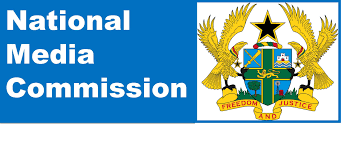Editorial
Indiscipline in schools worrying, need to address it
In recent years there has been growing concern over the behaviour of Senior High School (SHS) students in Ghana.
Notable among them is indiscipline, disrespect for authority, sexual immorality, substance abuse, betting, cheating during examination among others.
Recently, parents were stunned when the headmistress of Aggrey Memorial Senior High School, Mrs. Dorothy Adentwi-Hayford, displayed seized condoms, pills, and unauthorised items from students at the school’s Parent-Teacher Association (PTA) meeting in Cape Coast.
Reports say that in a firm stance against growing indiscipline in the school, she placed the confiscated items on the high table as a visual illustration of the moral and disciplinary challenges some students posed.
Although the Headmistress declined to name the culprits, she assured parents that appropriate disciplinary actions, alongside counselling would be taken.
According to the Headmistress while the majority of students were disciplined a persistent few students continued to exhibit deviant behaviours that undermined the school’s standards.
Citing examples she noted that sneaking out without exeat, bullying, stealing, truancy, and general apathy towards academic work, was the order of the day.
What is so disturbing is that some parents attack the school verbally and place curses on school authorities for disciplining their wards without verifying the facts.
Such behaviour is uncalled for and the Spectator wants such parents to desist from that, instead they should collaborate with school authorities to find the best way to deal with indiscipline among students.
Parents must also take an active interest in their children’s welfare beyond just providing for their material needs and investigate issues when their children return home with complaints before jumping into conclusion.
These days the school’s structure has changed and with the increasing numbers without any corporal punishment school authorities find it difficult to discipline the children.
The behaviour of majority of students in schools is very disheartening. While some students take their studies seriously, others have taken to the use of drugs, sex, occultism, betting and all kinds of bad behaviours.
Corporal punishment has its own advantages and disadvantages and if the Ghana Education Service (GES) is not ready to reintroduce corporal punishment, then school authorities must be extra vigilant and put in stricter disciplinary measures to restore order in schools.
Most SHS students are in their teenage stages, a stage characterised by all kinds of behaviours and peer pressure activities so they must not be left alone, rather they must be guided as they explore the world.
The Spectator urges all stakeholders to make concerted efforts to check indiscipline and moral decadence in schools.
Editorial
NMC must enforceguidelines to protectviewers, especially minors

Dear Editor,
I WRITE to express my growing concern about the increasing display of adult content on some television stations in the country.
These programmes, often aired during hours when children are most likely to be watching, pose a serious threat to their moral development and general well-being.
Television remains one of the strongest influences on young people, and stations have a responsibility to ensure that their content reflects the values we seek to instil in our society.
Unfortunately, some channels appear to prioritise sensationalism and profit over public safety and decency.
Such content not only exposes children to material they are not prepared to process but also undermines parents’ efforts to guide their behaviour.
I call on the National Media Commission (NMC) and other regulatory bodies to intensify monitoring and enforce stricter guidelines to protect viewers, especially minors.
Broadcasters must be reminded of their duty to promote responsible and wholesome programming.
Our airwaves should uplift, educate, and inform — not endanger the moral fabric of the next generation.
Eugene Ampiaw,
Accra
Join our WhatsApp Channel now!
https://whatsapp.com/channel/0029VbBElzjInlqHhl1aTU27
Editorial
Balancing faith,discipline at Wesley Girls SHS
Dear Editor,
I AM writing to share my thoughts on the ongoing issue at Wesley Girls’ Senior High School, which has attracted national attention after the Deputy Attorney General released a statement in court.
The matter is about whether Muslim students are being denied the right to freely practice their religion, and whether they are being compelled to follow practices that go against their faith.
To me, this is not just a legal issue but a question of fairness and respect in our schools.
While the Constitution guarantees every student the right to practice their faith, schools also have traditions and rules that must be respected. As the saying goes, “When you go to Rome, you do what Romans do.” If a teacher is teaching, it is not right for a student to suddenly leave for prayers. That disrupts learning.
Instead, schools should provide a clear time and place for worship, so that students can honour their faith without disturbing academic work. There is time for everything; time to learn, and time to pray.
Wesley Girls SHS can continue to uphold its Methodist heritage while also respecting the rights of Muslim students.
This compromise will protect unity and ensure that our schools remain places of both discipline and inclusion.
Princess Wonovi
Accra
Join our WhatsApp Channel now!
https://whatsapp.com/channel/0029VbBElzjInlqHhl1aTU27






